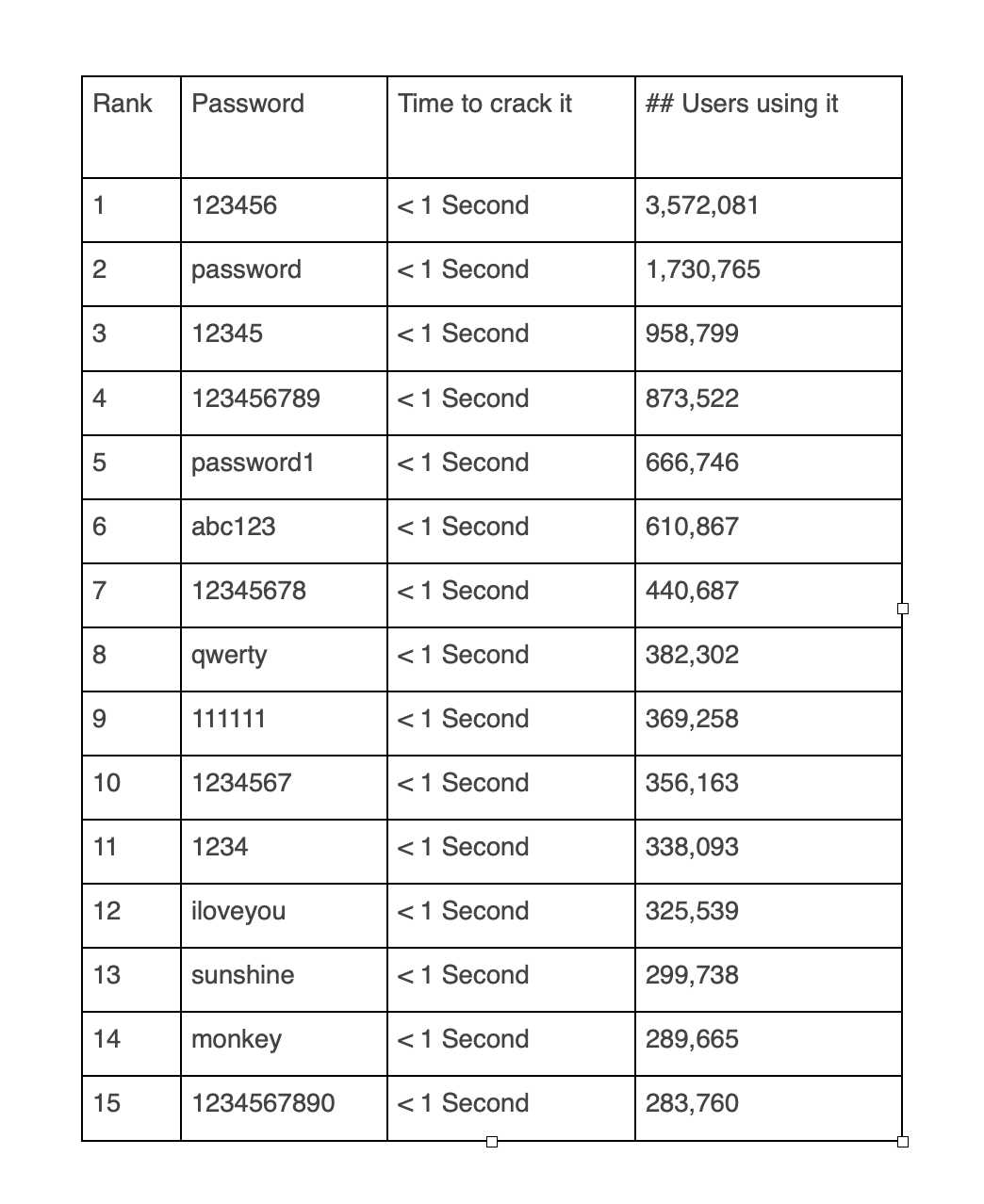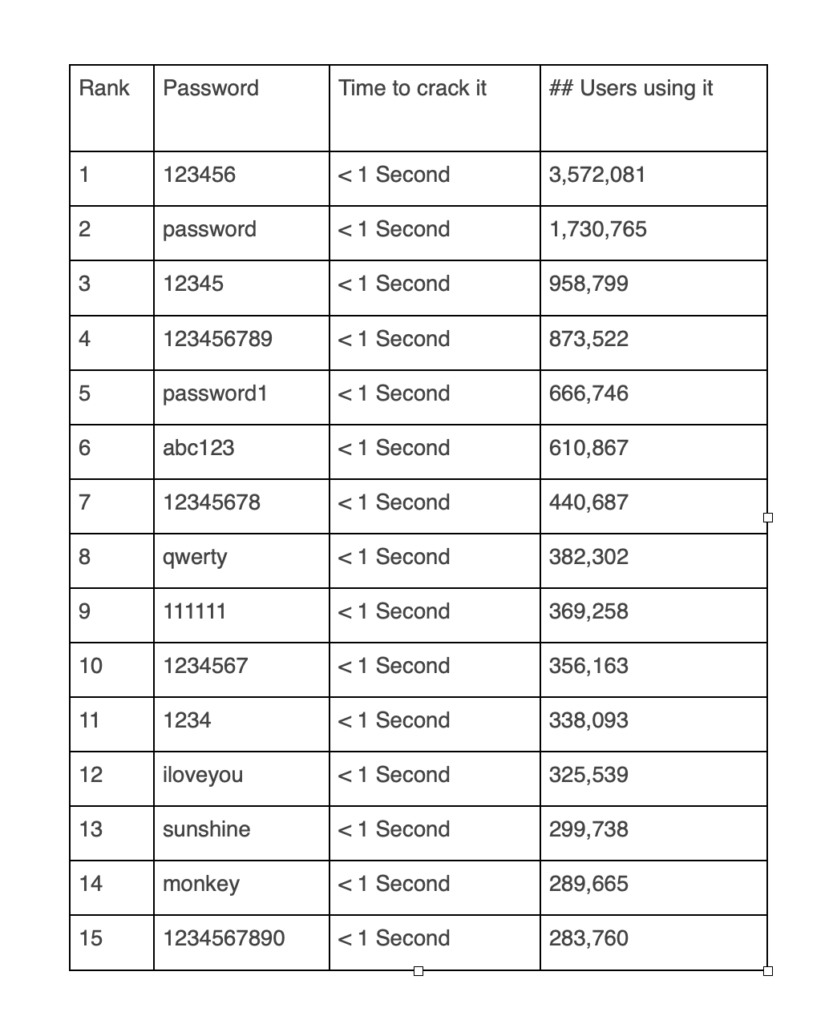IT Tuesdays: I Wouldn’t Use That Password If I Were You!

Because it’s that time of the year where we spend a lot of time online, I just couldn’t resist sharing another security reminder on password protection. Please don’t be proud if you find your password on the following crazy best-of-list compiled by NordPass, a password management software company. (The number of users below reflect the U.S. only.)

Beware of creating a password followed by a number such as 12345, or variations, as well as using words such as princess, baseball, or endless more creative stupidity.
Oh, I hope this didn’t hit home. On second thought, I very much hope this does hit home! And if not yours, pass it on to your customers, friends, and family. There is no excuse to get your password hacked in less than a second.
Some say, use a password manager, some write their passwords down (please, don’t leave the post-it under the keyboard on your desk.), others have an Excel or Google Sheet to keep track of their passwords. Once you embrace the never use a password twice rule it can become tricky to remember all your login credentials across company, private, and social networks. I counted mine recently: just under 300. And yes, it’s a nightmare. However, I never got lazy, never used any of the ones on the list above, not even one from the top 100 list (see link below). I use long passwords, never just the minimum recommended length, and you should, too.
Right now, we’re all busy shopping in-store and online, we’re in a rush, we want to grab the best deal, and we get careless. Don’t, just don’t.
Similar to how you create and manage passwords, you should also review your email address strategy. Don’t use your business email for online purchases, don’t even use your regular personal email. To protect yourself from too much spam, from too easy to hack combinations, use different email addresses for different accounts, for different credit cards. Your bank/credit card company may have your back, but the hassle? It’s not worth it.
Email addresses are for free, passwords only require a few more thoughts to create and a little bit more flexing your brain cells to remember them (or where and how you store them) and you’re on the road to more online security.
And yes, I would like to make a confession: I started using a password manager just recently. Along with an always on VPN. It doesn’t stop the really bad guys from hacking into someone else’s system but at least hacking into one system will only compromise one of my email/password combinations and not lead hackers to conclusions.
Stay safe out there!
Please visit The Cannata Report for more on the printing and office imaging industry.